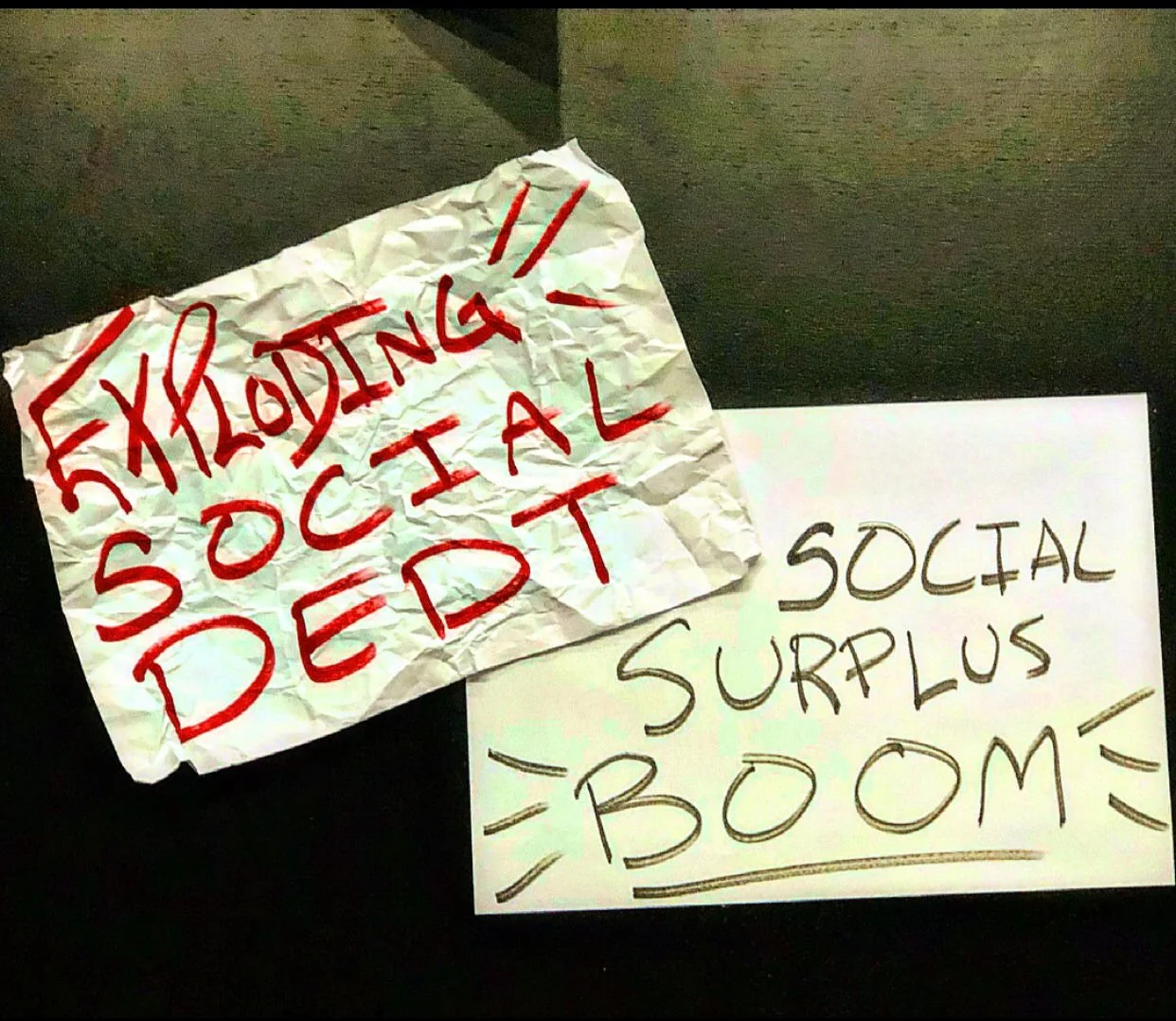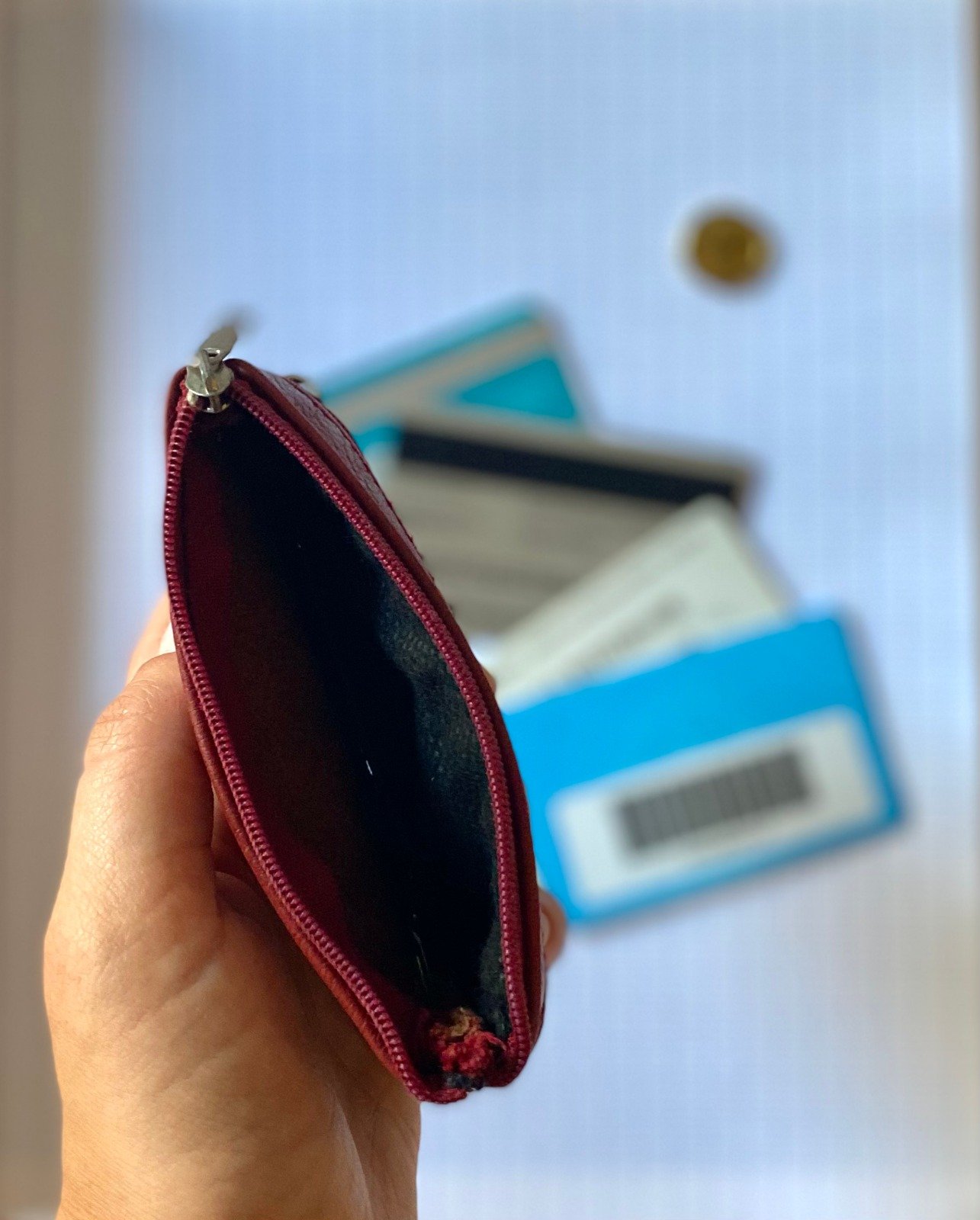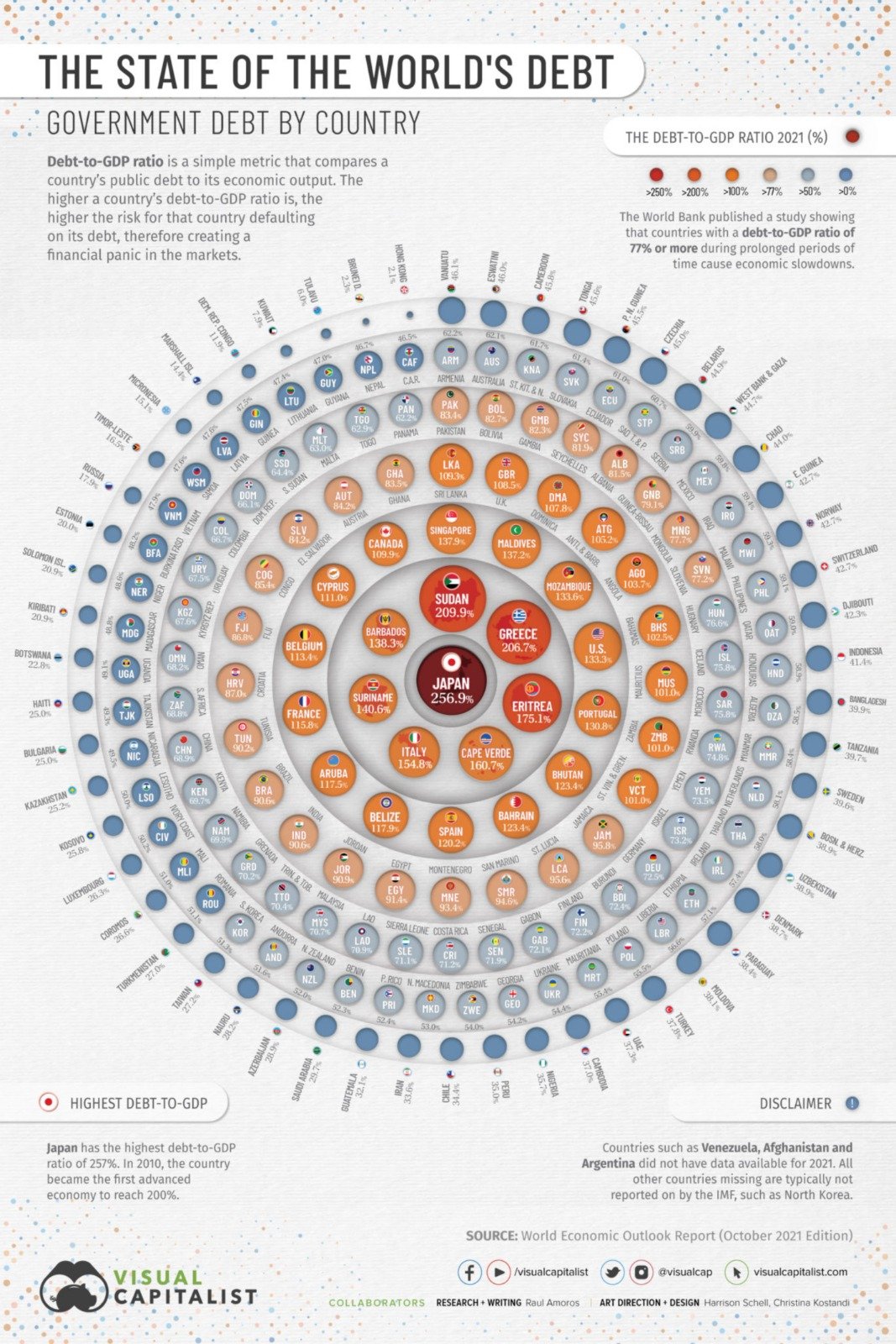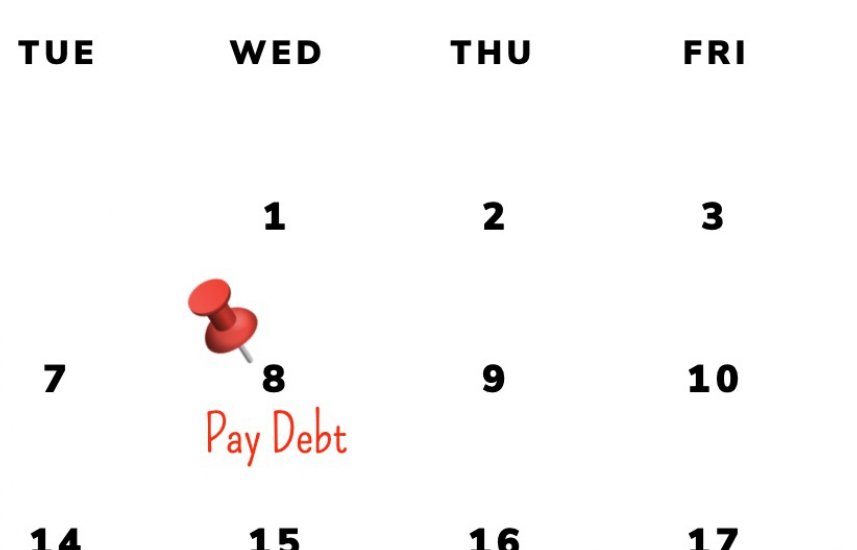Written by Louise Maheo
WHAT ARE WE TALKING ABOUT?
Humans are social beings and have learned to live in societies for thousands of years. A group is a numerical advantage in times when predators much bigger than a human beings were a danger to the human species. Over the years, humans have been able to rise to the top of the food chain and build a powerful society. At the national level, a society is not autonomous, insofar as it depends on countries for its trade and its politics. Humans have made their society an autonomous, global construction, even though, on a planetary scale, we consume more resources than the earth can produce.
A picture of public debt per country: (Source) https://moneystore.be/2022/reflexions-economiques/infographie-du-moisquels-sont-les-pays-les-plus-endettes-quel-futur-pour-ces-dettes-publiques
WHAT IS PUBLIC DEBT?
Public debt works in the same way people extract resources without contributing and become dependent on an expensive and unproductive system. It is an accumulation of current expenditure not covered by covered by revenues. Public debt is usually explained as a percentage of gross domestic product (GDP). Using this name allows the debt to be compared to the size of each country's economy, and it also facilitates international comparisons between countries.
“Public debt tends to be a chronic item in state budgets. Today, with the current governments that avoid austerity, far from amortizing it, they get more indebted.
In the end, if it is paid for, it will be by future generations for the most part.”
DO WE REALLY KNOW WHEN PUBLIC DEBT STARTED?
We asked William Thomson, the founder of Virtual Event Campus, who is studying in a MSc in the Green Economy.
“It’s existed for 100s of years in almost every country. Up until 1971 debt was linked to a countries ability to change notes/coins to gold (gold standard) but this constrained US spending on Vietnam so they ended the exchange. Now currency is fiat meaning its a promise to pay.”
With this testimony, we can see that over the years, debt has not developed in the same way, it is not the same as before. Money has also changed its status, since everything is virtual and our bank accounts are just numbers.
“So government debt has always been with us. Most countries most years run deficits (gaps between tax and spending) and having a “debt” is normal. So there’s unlikely to be any set date for the start of debt. Also, government debt isn’t like household debt and a government debt is partly public surplus.”
WHAT FACTORS ENCOURAGE PUBLIC DEBT?
“Public debt leads to high inflation hence people experiencing poverty only suffer because the cost of living increases.”
CAN THE PUBLIC DEBT BE REPAID?
“I believe public debt CAN be repaid, otherwise lenders wouldn’t lend money. Now, if you ask me if public debt SHOULD be completely repaid, I’d say NO because it isn’t necessary. I believe this because it can be used as a tool for creating more profitable money, which allows the debt to be increased intelligently.”
BUDGET SURPLUS
The opposite of this situation would be a budget surplus boom, as people generate wealth and consume resources while contributing and becoming active, independent citizens. This situation could be compared to the highest point of efficiency in both demand and supply: everything is optimized.
Community Surplus
HOW CAN THE BUDGET SURPLUS BE OPTIMIZED?
Theoretically, buyers buy at the highest price, and sellers at the lowest price. Thus, buyers and sellers optimize their activities. The budget surplus is obtained by adding the consumer surplus and the producer surplus. These are the surpluses that form the laws of the market. The surplus is a measure of the gains from the exchange, i.e. the advantage drawn by the participants (producers or consumers). Therefore, the higher the surplus, the higher the gains from exchange.
To conclude, although it seemed legitimate and normal to ask those who benefited from these current expenses to finance them through a "refundable credit," it was not successful. Since COVID-19 crisis, most countries have seen their public debt increase, being obliged to borrow from the financial market to repay their debt. The “perfect” solution would be to encourage companies to participate in the budget surplus boom because it would encourage markets and the result would be increased state flexibility, reduced interest costs and the ability to invest in future growth.
*Thank you for reading this article! If you would like to contribute your thoughts, pictures or videos to this article or believe you have found mistakes and/or misinformation, please contact us and tell us about it by clicking on the button next to this text, so we can take your feedback into consideration.







